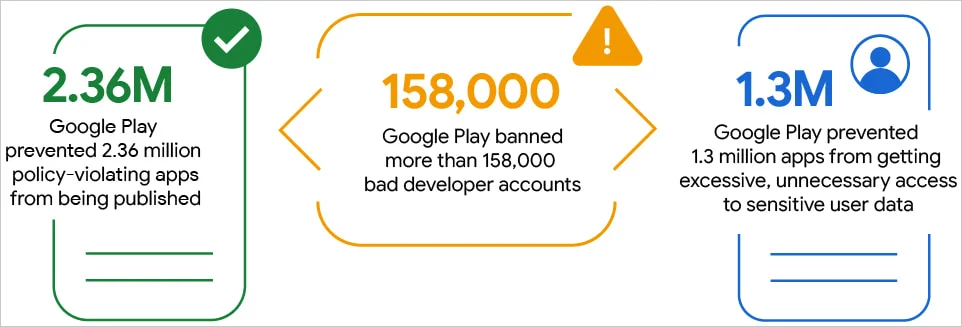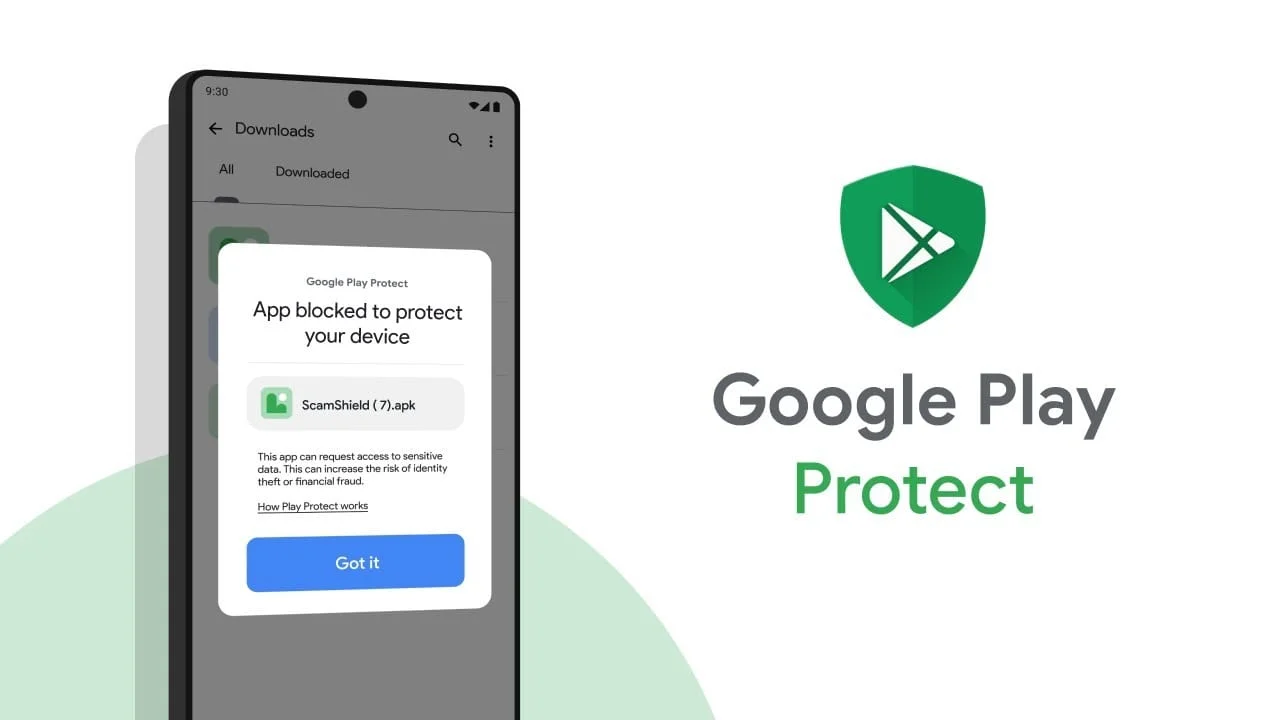The Article Tells The Story of:
- Google blocked 2.36 million risky Android apps and banned 158,000 developer accounts in 2024.
- AI-assisted reviews helped detect 92% of harmful apps faster.
- Play Protect stopped 36 million installation attempts from untrusted sources.
- Android users must stay vigilant as cybercriminals evolve their tactics.
Google’s Fight Against Risky Android Apps in 2024
In 2024, Google took massive steps to protect Android users from harmful Android apps. The company blocked 2.36 million risky Android apps submissions to the Play Store. These apps violated Google’s policies and posed risks to users. Google also banned 158,000 developer accounts for trying to publish malware and spyware. This marked a significant increase from previous years. In 2023, Google blocked 2.28 million apps and 333,000 developer accounts. In 2022, the numbers were 1.5 million apps and 173,000 accounts.
Check Out Our Article of 11 Million Android Users Targeted by Necro Trojan – Find Out How to Stay Safe Published on September 25, 2024 SquaredTech
AI-Powered Reviews: A Game-Changer
Google’s success in 2024 was largely due to AI-assisted reviews. Over 92% of human reviews for harmful apps were supported by AI. This allowed Google to act faster and more accurately. The company stopped more bad apps from reaching users than ever before. Google also prevented 1.3 million apps from gaining excessive permissions. These permissions could have given apps unnecessary access to sensitive user data.

Upgraded Play Protect: Real-Time Security
Google Play Protect, Android’s built-in security system, received major upgrades in 2024. It now offers better real-time protection against malicious apps, scams, and fraud. Play Protect scans over 200 billion apps daily. It performs live code-level analysis to detect threats. In 2024, these scans identified 13 million new malware apps from outside the Play Store.
New Tools for Developers
Google also provided developers with new tools to secure their apps. The Google Play SDK index expanded by adding 80 trusted SDKs. This helped developers avoid malicious SDKs and abuse. The Play Integrity API saw increased adoption, reducing abuse from untrusted sources by 80%. Additionally, 91% of app installs now use security and privacy features available in Android 13 and later.
Blocking Untrusted APK Installations
Google launched a pilot program in Singapore in February 2024 to block untrusted APK installations. This program expanded to countries like Brazil, India, and Nigeria. It successfully stopped 36 million installation attempts of 200,000 unique apps. These apps were prevented from nesting in 10 million Android devices.
The Ongoing Battle Against Cybercriminals
Despite Google’s efforts, cybercriminals continue to find new ways to bypass security measures. Users must remain cautious. They should only download apps from reputable publishers. Keeping the number of installed apps to a minimum is also important. Users should regularly review and revoke risky app permissions. Ensuring Play Protect is always active is another critical step.
Check Out Our Article of DeepSeek’s Cyberattack Chaos: The Rise of China’s Revolutionary AI Published on January 28, 2025 SquaredTech
Conclusion
Google’s 2024 efforts to block risky Android apps show its commitment to user safety. With AI-assisted reviews, upgraded Play Protect, and new developer tools, the company is making the Play Store safer. However, users must also take steps to protect their devices. By staying vigilant, they can avoid falling victim to harmful apps.
Stay Updated: Tech News


